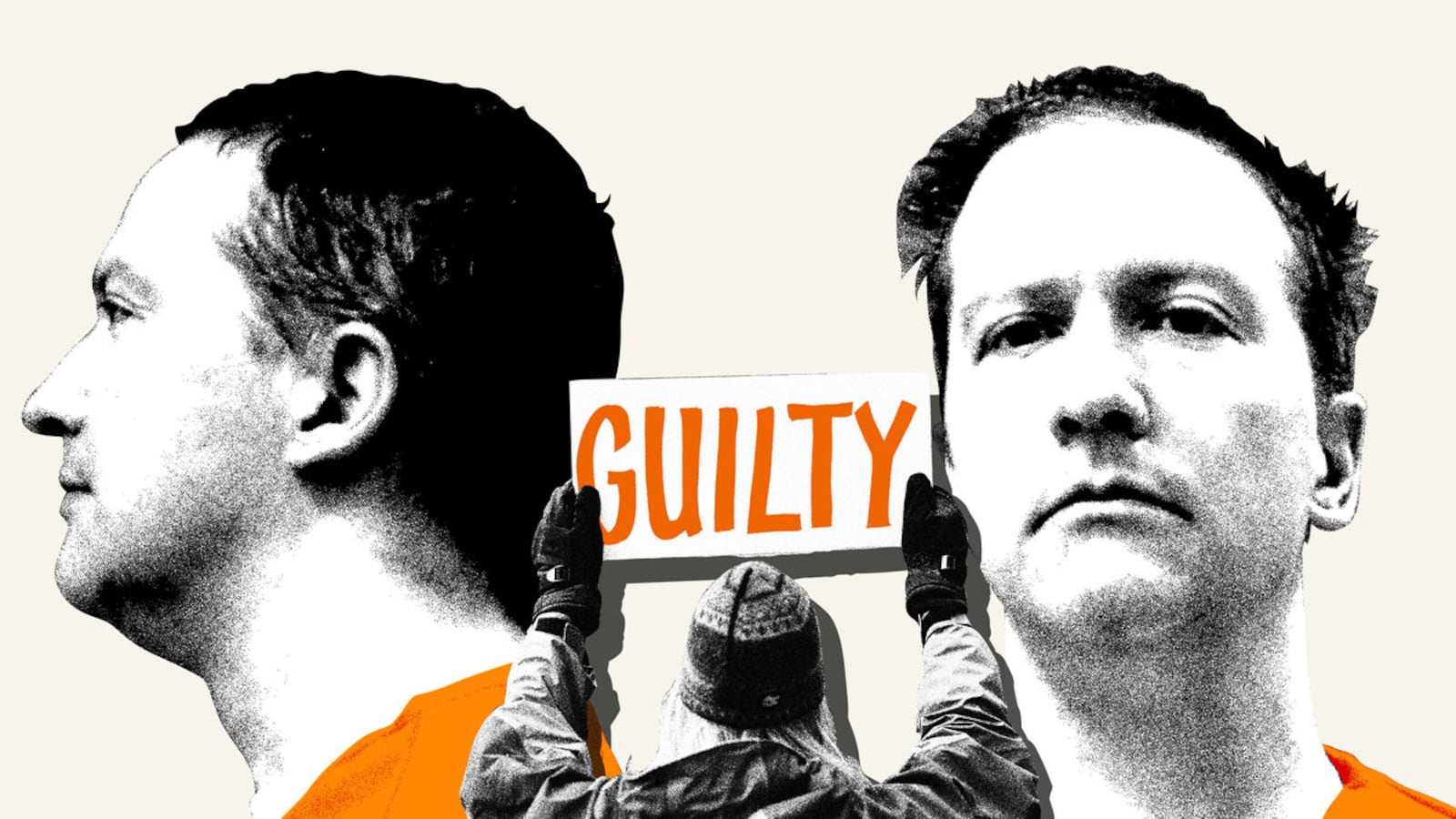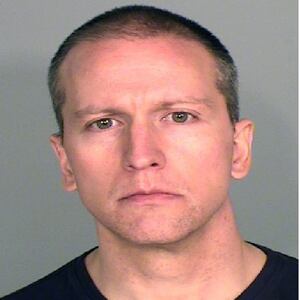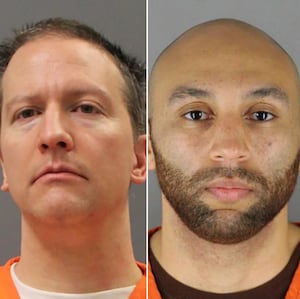One year and one month after murdering George Floyd, an unarmed, 46-year-old Black man, in a crime so brutal it sparked a nationwide revolt over racist police violence, disgraced ex- Minneapolis cop Derek Chauvin has been sentenced to 22 and a half years in prison.
Chauvin, 45, was convicted in April of second-degree murder, third-degree murder, and second-degree manslaughter for Floyd’s video-recorded killing on May 25, 2020. The verdict came after a four-week trial in which prosecutors successfully argued Chauvin “betrayed” his badge when he and three fellow officers ignored the pleas of Floyd and a slew of bystanders who saw the man’s life was in danger as Chauvin held his knee on his neck and Floyd gasped for air.
While Chauvin was sentenced to 270 months on Friday, the judge gave him 199-day credit for several months already served. According to the 22-page sentencing memo, Hennepin County District Judge Peter Cahill also ordered that Chauvin will have to register as a predatory offender, and he is now prohibited from possessing firearms or ammunition for the rest of his life.
The arrest—during which Floyd cried out that he could not breathe a staggering 27 times over nine minutes before losing consciousness—was met with international uproar, re-energizing the Black Lives Matter movement and renewing long-overdue scrutiny on police brutality cases. It also helped set the stage for what advocates hoped was some measure of accountability for bad cops in the days to come.
“This sentence is pivotal for the future of police-brutality cases,” Christopher Brown, a lawyer who represents victims of police violence in Virginia, told The Daily Beast. “It’s going to give people the confidence to speak out against it and to increase the amount of pushback. This also sends a signal to law enforcement officers across the country that this behavior is not tolerated—and they will be held liable if they do.”
During the Friday sentencing hearing, prosecutors provided the court with four victim-impact statements from family members to argue Chauvin deserved a harsh sentence—including a video of Floyd’s 7-year-old daughter, Gianna.
“I miss you and I love you,” Gianna said when asked what she would like to tell her father, noting she missed brushing her teeth with him every night.
Brandon Williams, Floyd’s nephew, also spoke to the court Friday, stating that it was not “humanly impossible” for him to say what his uncle’s murder had done to him and his family. “The heartbreak and hurt goes far beyond any number of tears we could ever cry,” Williams said, adding that his family was “forever broken.”
Floyd’s brother, Terrance Floyd, spoke directly to Chauvin during his statement, asking the former cop what was going through his head “when you had your knee on my brother’s neck?”
Chauvin, who was wearing a blue face mask and grey suit, remained emotionless at the defense table.
The sentence came despite myriad efforts from Chauvin and his legal team to spare him a hefty punishment and even to get him sentenced to probation. In a sentencing memo, defense attorney Eric Nelson insisted his client was unaware he was committing a crime last May and was simply performing his professional duties. Nelson also went so far as to claim Chauvin was the product of a “broken system” and that, regardless of the political strife around his case, his client “is still a human being.”
Speaking out for the first time since the fatal arrest of Floyd—for an alleged counterfeit $20 bill—Chauvin himself offered condolences to the Floyd family before issuing a cryptic message.
“There’s gonna be some other information in the future that will be of interest and I hope these will give you some peace of mind,” he said, likely alluding, among other things, to federal civil-rights probes of the saga.
Carolyn Pawlenty, Chauvin’s mother, also spoke during Friday’s sentencing “on behalf of my entire family.” Arguing that her son was a “good man,” she begged the court for leniency, noting that “when you sentence him, you are sentencing me.”
“When he is released, his father and I will not be here,” she added.
Prosecutors had sought 30 years, and the actual sentence Chauvin received came as little surprise. During the trial, bystanders to Floyd’s murder and members of the Minneapolis police department testified that he ignored protocol and used excessive force during the arrest. Among the teenage bystanders who testified was Darnella Frazier, who was just 17 years old when she filmed the viral video of Floyd’s fatal arrest. Frazier was awarded a special citation by the Pulitzer Board this month.
Their testimony was so harrowing, Cahill ruled that Chauvin should face longer-than-normal sentencing for several aggravating factors, like abusing his position of trust and authority as a police officer, and treating Floyd with “particular cruelty” during the arrest.
For Amity Dimock-Heisler, whose 21-year-old son was shot six times by two Brooklyn Park, Minnesota, police officers responding to a disturbance call at his grandparent’s home in 2019, Chauvin’s sentence was just the start of change in the Twin Cities.
As one of the hundreds of area residents who have lost loved ones at the hands of local law enforcement over the past two decades, Dimock-Heisler told The Daily Beast the sentence represented a “sigh of relief” after being denied justice for so long.
“I think that the murder of George Floyd started the critical change, but the problem with change is that it takes a long time, it takes lots of steps and constant work. So this sentence is just another step for the change we so desperately need,” the 47-year-old accountant said. “This trial showed that we all could have our day in court—and that’s all we really wanted.”
Toshira Garraway, who founded the group Families Supporting Families Against Police Violence after her fiancé was killed by cops, also expressed her hopefulness about Cahill’s sentence—but was skeptical real change will happen in a state that she says “has a major problem with police brutality.”
Garraway noted that Minnesota has a long way to go after countless other cases in the state have gone unnoticed for decades and that Floyd’s case is the result of “law enforcement’s hand being forced after the video of George Floyd’s death went viral.” Among those cases is the death of her fiancé Justin Teigen, who was killed by St. Paul police after a traffic stop in August 2009.
“George Floyd is the face of hundreds of murders in Minnesota—and Derek Chauvin is the face of hundreds of officers who got away with it,” Garraway said. “This moment is bittersweet because it’s a reminder of all the murders at the hands of law enforcement that have not gotten any justice or attention. But it’s a jumping point for us to continue our push for justice.”
Chauvin’s sentencing does not end the legal road for the former cop. Chauvin and the other three officers involved in the arrest—Tou Thao, Thomas K. Lane, and J. Alexander Kueng—have all been federally charged with violating Floyd’s civil rights last May. Chauvin is also facing a separate indictment for allegedly violating the civil rights of a 14-year-old boy after he placed his knee on his neck for 17 minutes during a 2017 arrest.
“It wouldn’t surprise me if Chauvin worked out a deal to plead guilty for the federal charges and have his sentencing served concurrently,” Jonathan Smith, the executive director of the Washington Lawyers’ Committee for Civil Rights and Urban Affairs who worked on police oversight in the Obama-era Justice Department, told The Daily Beast. “Friday will shape his legal team’s decisions for his federal case.”
The three other officers also still have to face trial in August on their own state charges of aiding and abetting second-degree murder while committing a felony, and aiding and abetting second-degree manslaughter with culpable negligence.
“Those officers are also watching very carefully because Friday sets the benchmark for their cases. I could see them scrambling for plea deals if Chauvin gets a hefty sentence,” Smith said before it came down, noting that their upcoming trial may be even more important than his for precedent.
“I think that trial will set a bigger template on how to prosecute law enforcers because while Chauvin was a unique aggressor that could not be swayed, the others simply went along with orders,” Smith added. “Their trial will show how to prosecute officers who fall more into the gray area.”







